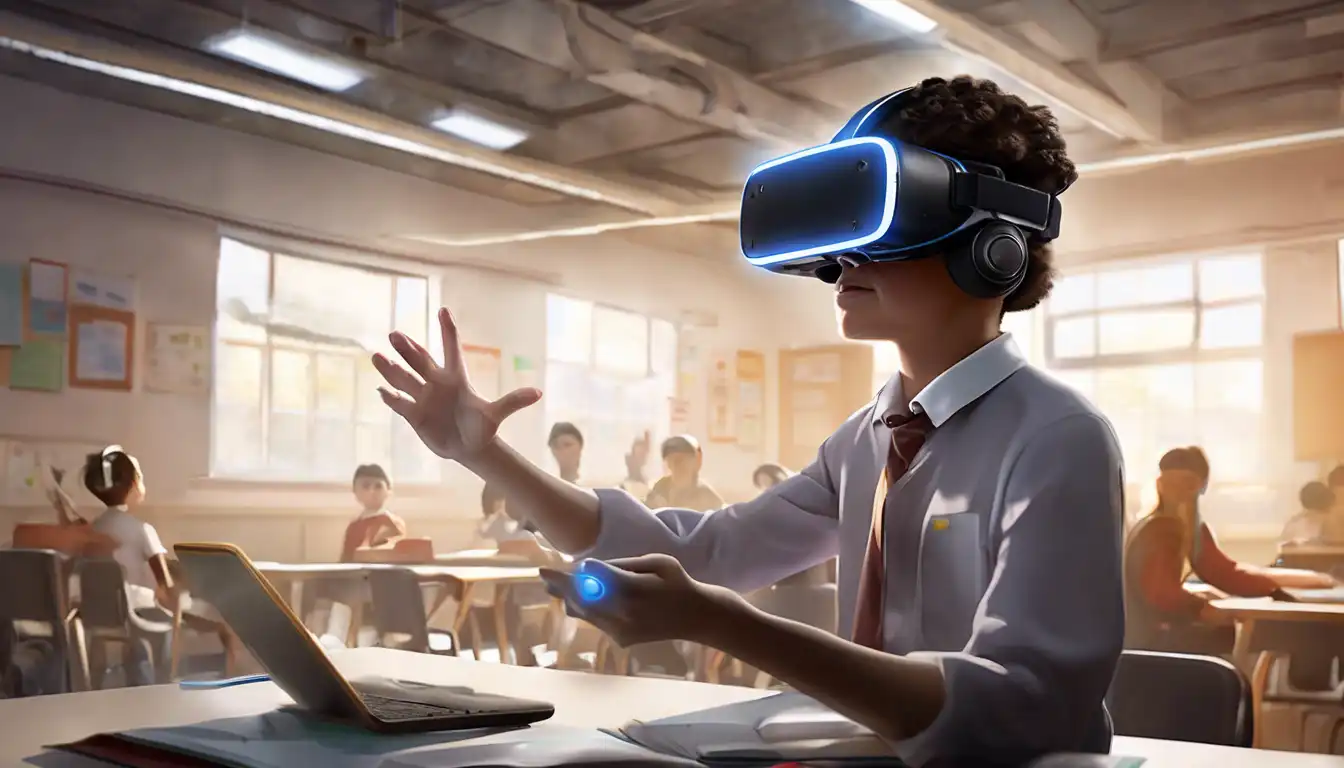The Transformative Impact of Virtual Reality on Learning
Virtual Reality (VR) technology has emerged as a groundbreaking tool in the realm of education and training, offering immersive experiences that were once unimaginable. By simulating real-world environments, VR provides learners with the opportunity to explore, interact, and engage with content in a deeply personal and impactful way. This article delves into the potential of VR in revolutionizing educational methodologies and training programs across various sectors.
Why VR is a Game-Changer in Education
The traditional classroom setting is undergoing a significant transformation, thanks to VR. This technology enables students to embark on virtual field trips, conduct complex scientific experiments, and even travel back in time to witness historical events firsthand. Such immersive learning experiences not only enhance comprehension but also significantly increase retention rates. For more insights on innovative learning tools, check out our technology in education section.
VR in Professional Training and Development
Beyond the classroom, VR is making waves in professional training programs. Industries such as healthcare, aviation, and manufacturing are leveraging VR to simulate high-risk scenarios, allowing trainees to practice and hone their skills in a safe, controlled environment. This not only reduces the risk of accidents but also cuts down on training costs. The ability to repeat complex procedures until mastery is achieved is another advantage that VR brings to the table.
Challenges and Considerations
Despite its numerous benefits, the integration of VR into education and training is not without challenges. High costs, technological limitations, and the need for specialized content creation are some of the hurdles that educators and trainers face. However, as technology advances and becomes more accessible, these obstacles are expected to diminish, paving the way for wider adoption of VR in learning environments.
The Future of VR in Education and Training
The potential of VR in education and training is vast and largely untapped. As developers continue to create more sophisticated and affordable VR solutions, we can anticipate a future where virtual learning experiences become a staple in both academic and professional settings. The key to unlocking this potential lies in collaboration between educators, technologists, and policymakers to ensure that VR is used effectively to enhance learning outcomes.
In conclusion, VR holds the promise of transforming the way we learn and train, making education more engaging, effective, and accessible to all. By embracing this technology, we can open up new horizons for learners and professionals alike, fostering a culture of continuous learning and innovation. For further reading on the latest trends in educational technology, visit our edtech trends page.
